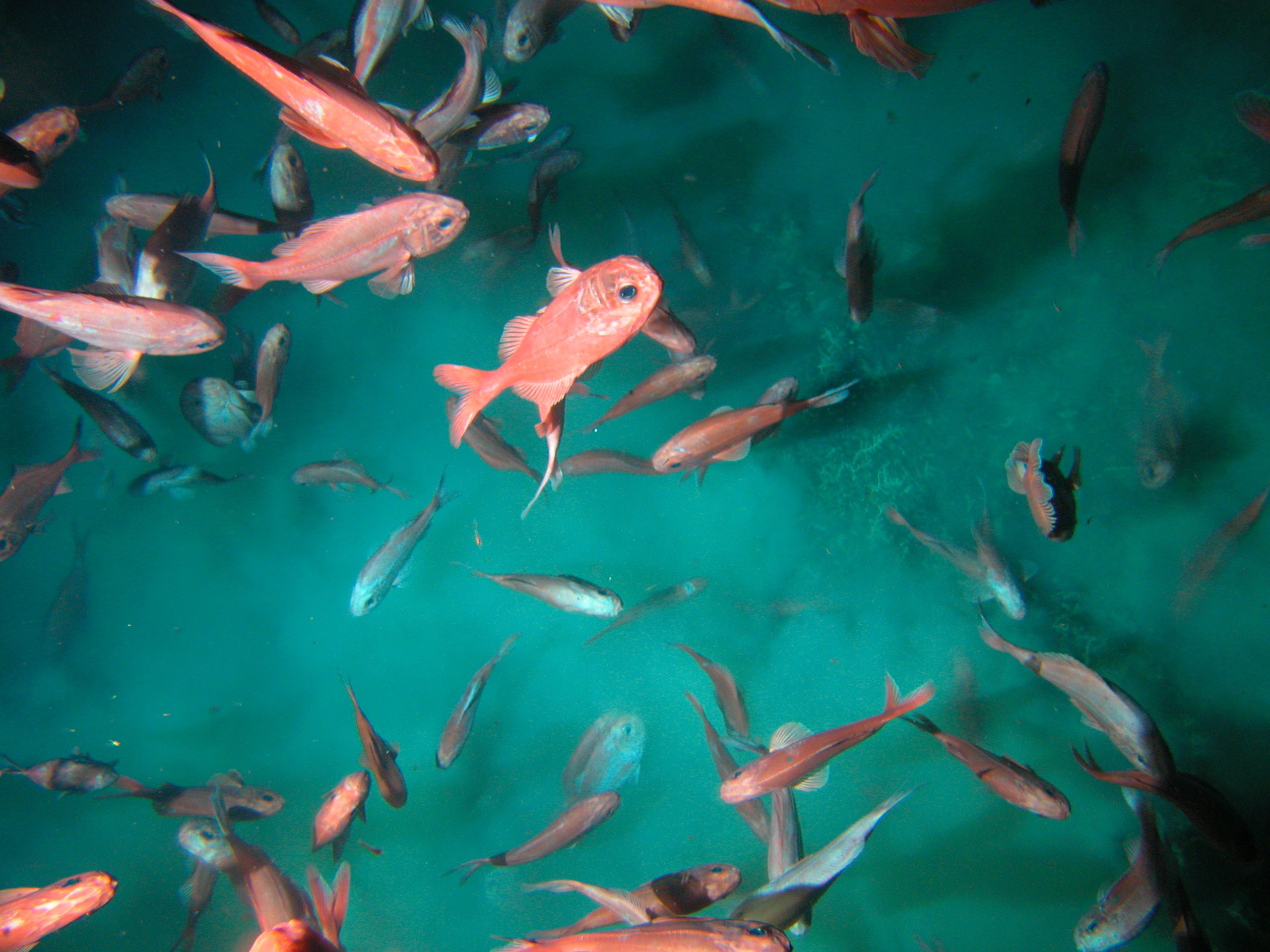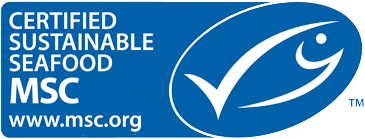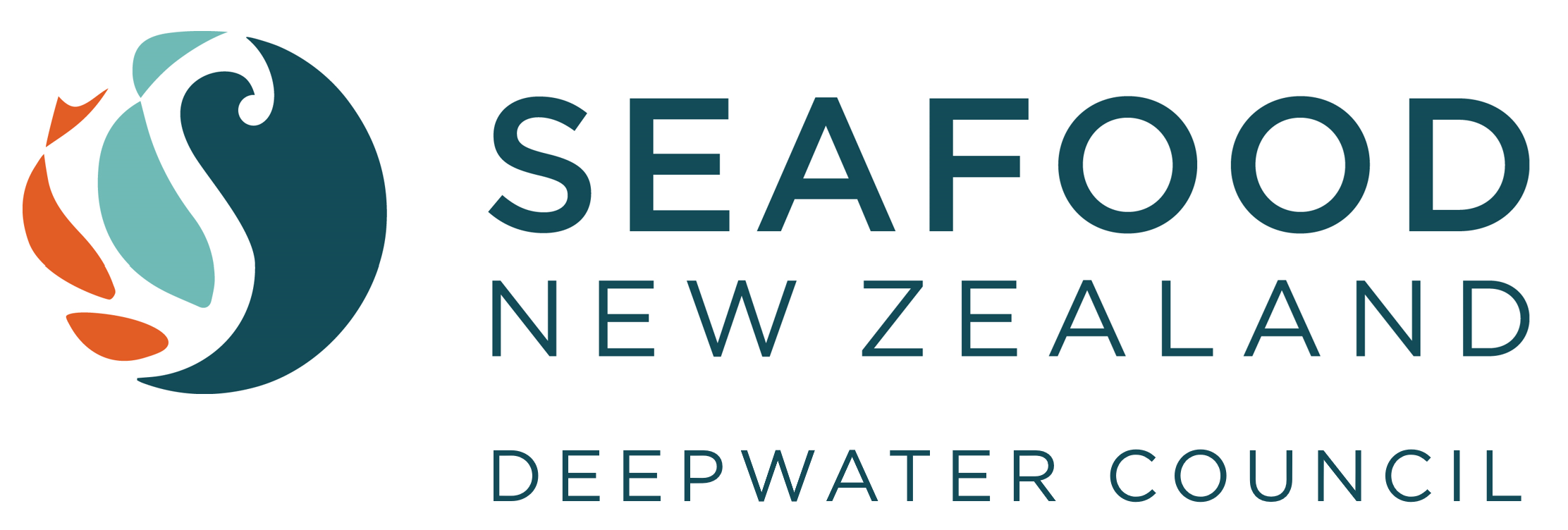
Certification
Around two-thirds of the catch from New Zealand deepwater fisheries is MSC certified
Deepwater Group’s Fisheries Certification Programme
A Fisheries Certification Programme (FCP) is a four-staged work programme that Deepwater Group (DWG) has implemented in conjunction with its external partners to progress fisheries through to third-party validation such as Marine Stewardship Council certification.
CERTIFICATION OBJECTIVE
It’s not enough to simply tell people that New Zealand’s fisheries are sustainable, we seek to verify this through third-party certification.
Key benefits of certification are:
- Use of objective, third-party fishery assessment based on independent science
- Transparent processes with built-in stakeholder consultation and objection procedures
- Standards based on the three components: sustainability, ecosystems and management practices
- Consumers can buy New Zealand seafood with confidence and the independent assurance that it has been sustainably harvested.
The Marine Stewardship Council (MSC) sets the highest independent standards for sustainable fishing production and is being used to certify New Zealand’s deep water fisheries. The MSC scheme follows international, professional benchmarks to promote robust processes and uphold values of independence, transparency, impartiality and stakeholder consultation.
The MSC is a global organisation working with fisheries, seafood companies, scientists, conservation groups and the public to promote the best environmental choices in seafood. Their standards are based on three principles:
P1 - Sustainable fish stocks. Are the fish stocks healthy?
"A fishery must be conducted in a manner that does not lead to over-fishing or depletion of the exploited populations and, for those populations that are depleted, the fishery must be conducted in a manner that demonstrably leads to their recovery."
The intent of this principle is to ensure that the productive capacities of the resources are maintained at high levels and are not sacrificed in favour of short-term interests.
P2 - Minimal impacts on the environment. Is the fishery damaging the marine environment?
"Fishing operations should allow for the maintenance of the structure, productivity, function and diversity of the ecosystem (including habitat and associated dependent and ecologically related species) on which the fishery depends."
The intent of this principle is to encourage the management of fisheries from an ecosystem perspective under a system designed to restrain the impacts of the fishery on the ecosystem.
P3 - Effective fisheries management. Is there ongoing effective management of that fishery?
"The fishery is subject to an effective management system that respects local, national and international laws and standards and incorporates institutional and operational frameworks that require the use of the resource to be responsible and sustainable."
The intent of this principle is to ensure that there is an institutional and operational framework for implementing Principles 1 and 2, appropriate to the size and scale of the fishery.
Four-staged Programme
DWG and the Ministry for Primary Industries (MPI) jointly initiated the Fisheries Certification Programme (FCP) as a path to achieving certification for each fishery. A FCP is a four-staged work programme:
Stage One: Gap Analysis
The current performance of a fishery is assessed against the certification standards and any shortfalls are identified. This may involve any, or a combination, of the following:
- Internal experts
- External experts
- Formal external pre-assessment – confidential
- Formal external pre-assessment – public
Stage Two: Remedial Action Plan
A Remedial Action Plan (RAP) is established to address the gaps identified in Stage One to improve the fishery’s performance to a level that will meet the certification standards.
A RAP identifies the resources required, the milestones and the information requirements.
A RAP may be implemented internally by DWG and MPI. Alternatively, it may take the form of a formal, public, time-bound Fisheries Improvement Plan.
Stage Three: Third-party Assessment
An accredited team of experts is contracted to undertake an independent and public assessment of the fishery against the certification standards. The assessors will then determine whether, or not, the fishery should be certified.
Stage Four: Maintain Performance
Once certified the performance of the fishery is maintained (or improved, if required) by:
- Closing any conditions of certification – for example if the assessors have required further information or improved performance before the next audit
- Maintaining fishery performance in conformance with the standards for the certification period. For MSC this is five years during which annual surveillance audits are required.
Status of Fisheries
Currently, 19 deepwater fisheries are certified. Together these comprise five of the nine main deepwater species, two-thirds of the deepwater catch and close to half of New Zealand's production of natural seafood (not including aquaculture).

Follow the links below to learn more about the path to certification for these fisheries:
